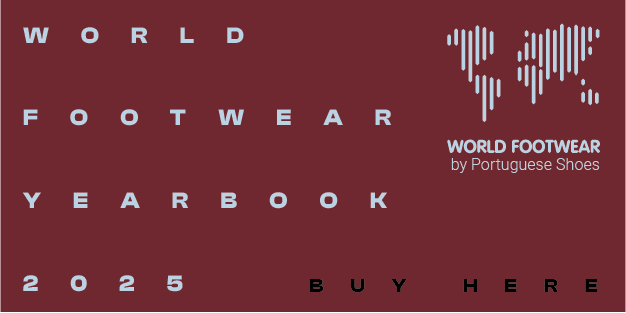The boom in footwear with made-man materials in Portugal

According to APICCAPS, the Portuguese Footwear, Components and Leather Goods Manufacturers’ Association, during the first half of the current year exports of synthetic footwear increased 92%
The same source announced that in the first semester of 2014, the Portuguese footwear industry sold abroad 9 million pairs of synthetic and plastic footwear with a total value of 55 million euros.
This is the result of an active search made by companies and brands to diversify their portfolio of products and expand the assortment of materials used in production. By the other hand as leather costs continue its growing path, increasing production costs and selling prices, customers are pushed towards shoes made with alternative materials with a lower price. Although footwear with man-made materials is commonly associated to plastic shoes, it includes a diverse range of synthetic materials.
The Portuguese footwear industry is not immune to this trend. A growing number of Portuguese brands have new ventures in this area, producing wellies, shoes and sandals, such as Cubanas, Cohibas and Lemon Jelly, a brand born within the Procalçado Group. Introduced to the market only a year ago, Lemon Jelly already exports 70% of its production to 15 countries.
After 40 years dedicated to the production of soles for footwear and other shoe’s components, Procalçado, a company based in Vila Nova de Gaia, in the north of Portugal, decided to invest in an injectable footwear line. According to Mr. José Pinto, owner of the group, everything happened instinctively. "It was a very simple and relatively natural process as we already mastered the technology used. Moving forward from soles to a line of footwear required the development of more complex molds, but it was the logic evolution of our business”, he commented in a recent interview to APICCAPS’s newspaper. Mr. Pinto recognized the growing interest in this type of product. “Over the past 10 years, I have felt that this area has gained space in the market, and the consumer is much more aware and interested in such products, which are no longer seen as inferior, but are considered to have a different level of quality and specific technicalities”.
This is the result of an active search made by companies and brands to diversify their portfolio of products and expand the assortment of materials used in production. By the other hand as leather costs continue its growing path, increasing production costs and selling prices, customers are pushed towards shoes made with alternative materials with a lower price. Although footwear with man-made materials is commonly associated to plastic shoes, it includes a diverse range of synthetic materials.
The Portuguese footwear industry is not immune to this trend. A growing number of Portuguese brands have new ventures in this area, producing wellies, shoes and sandals, such as Cubanas, Cohibas and Lemon Jelly, a brand born within the Procalçado Group. Introduced to the market only a year ago, Lemon Jelly already exports 70% of its production to 15 countries.
After 40 years dedicated to the production of soles for footwear and other shoe’s components, Procalçado, a company based in Vila Nova de Gaia, in the north of Portugal, decided to invest in an injectable footwear line. According to Mr. José Pinto, owner of the group, everything happened instinctively. "It was a very simple and relatively natural process as we already mastered the technology used. Moving forward from soles to a line of footwear required the development of more complex molds, but it was the logic evolution of our business”, he commented in a recent interview to APICCAPS’s newspaper. Mr. Pinto recognized the growing interest in this type of product. “Over the past 10 years, I have felt that this area has gained space in the market, and the consumer is much more aware and interested in such products, which are no longer seen as inferior, but are considered to have a different level of quality and specific technicalities”.











